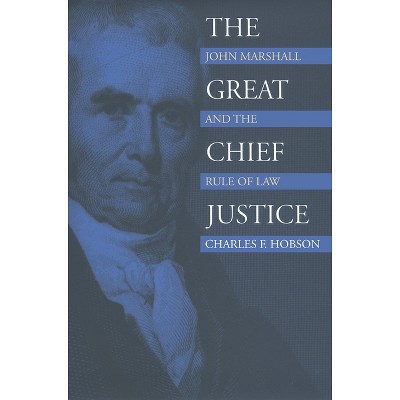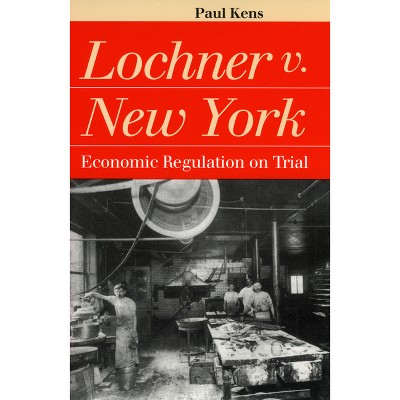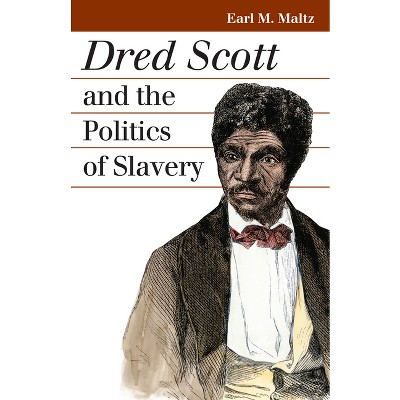Sponsored

The Insular Cases and the Emergence of American Empire - (Landmark Law Cases & American Society) by Bartholomew H Sparrow (Paperback)
In Stock
Sponsored
About this item
Highlights
- When the United States took control of Cuba, Puerto Rico, the Philippines, and Guam following the Spanish-American War, it was unclear to what degree these islands were actually part of the U.S. and, in particular, whether the Constitution applied fully, or even in part, to their citizens.
- Author(s): Bartholomew H Sparrow
- 312 Pages
- Freedom + Security / Law Enforcement, Constitutional
- Series Name: Landmark Law Cases & American Society
Description
About the Book
Focuses on America's first attempts at empire-building through a string of U.S. Supreme Court decisions in the early part of the 20th century that tried to define the legal and constitutional status of America's island territories: Puerto Rico, Cuba, and the Philippines, among others, and reveals how the Court provided the rationalization for the establishment of an American empire.Book Synopsis
When the United States took control of Cuba, Puerto Rico, the Philippines, and Guam following the Spanish-American War, it was unclear to what degree these islands were actually part of the U.S. and, in particular, whether the Constitution applied fully, or even in part, to their citizens. By looking closely at what became known as the Insular Cases, Bartholomew Sparrow reveals how America resolved to govern these territories. Sparrow follows the Insular Cases from the controversial Downes v. Bidwell in 1901, which concerned tariffs on oranges shipped to New York from Puerto Rico and which introduced the distinction between incorporated and unincorporated territories, to Balzac v. Puerto Rico in 1922, in which the Court decided that Puerto Ricans, although officially U.S. citizens, could be denied trial by jury because Puerto Rico was "unincorporated." There were 35 Insular Cases in all, cases stretching across two decades, cases in which the Court ruled on matters as diverse as tariffs, double jeopardy, and the very meaning of U.S. citizenship as it applied to the inhabitants of the offshore territories. Through such decisions, as Sparrow shows, the Court treated the constitutional status of territorial inhabitants with great variability and decided that the persons of some territories were less equal than those of other territories. Sparrow traces the fitful evolution of the Court's Incorporation Doctrine in the determination of which constitutional provisions applied to the new territories and its citizens. Providing a new look at the history and politics of U.S. expansion at the turn of the twentieth century, Sparrow's book also examines the effect the Court's decisions had on the creation of an American empire. It highlights crucial features surrounding the cases--the influence of racism on the justices, the need for naval stations to protect new international trade, and dramatic changes in tariff policy. It also tells how the Court sanctioned the emergence of two kinds of American empire: formal territories whose inhabitants could be U.S. citizens but still be denied full political rights, and an informal empire based on trade, cooperative foreign governments, and U.S. military bases rather than on territorial acquisitions. The Insular Cases and the Emergence of American Empire reveals how the United States handled its first major episode of globalization and how the Supreme Court in these cases, crucially redirected the course of American history.Review Quotes
"A scholarly feat. Not only does Sparrow make the complex legal argument crystal clear, but he also delves deeply into the political and cultural factors underlying each opinion. . . . His work is also a study of empire, formal and informal, at the turn of the nineteenth century that he makes fascinatingly relevant to our own time."--Journal of American History
"Sparrow's research is exceedingly impressive. . . . He has written a learned and thematically probing commentary on thirty-five Supreme Court decisions that established the constitutional standing and legal rights of the inhabitants of the new territories. He carefully locates this analysis in the relevant racial, economic, and political contexts; informatively traces the Court's changing composition and dynamics; and provides engaging biographical sketches of the justices. . . . The Insular Cases were central to governing America's island empire acquired at the turn of the twentieth century, much of which remains in existence. . . . [This book] . . . certainly contributes to our understanding of the American justification for and practice of imperialism."--Journal of the Gilded Age and Progressive Era
"An impressively researched and detailed work of political and legal history. . . . This will be an invaluable reference to anyone seeking to understand the historical and political context of these unjustly neglected cases."--Law and Politics Book Review
"Sparrow demonstrates that these cases marked a fundamental shift in constitutional law and reoriented the United States' relations with the world in ways that are still highly relevant today. . . . America's empire is more than ever insular in character. Sparrow's fine book forces us to confront this fact and rethink the decisions that not only excluded island peoples from the protection of the United States constitution, but undermined the constitution itself, leading directly to some of the disgraceful abuses of human rights revealed on islands and islanded places everywhere America now holds sway."--Island Studies Journal
"The Insular Cases are among the most important, disturbing, and yet neglected of the nation's constitutional landmarks. Today, when talk of a new American empire abounds and terrorist threats have created pressures to limit the rights of aliens and suspect citizens, these precedents are more significant than ever. Sparrow's thorough and sobering guide to the Cases is timely and valuable."--Rogers M. Smith, author of Civic Ideals: Conflicting Visions of Citizenship in U.S. History
"Sparrow is a sure-footed guide through the territory covered by the Supreme Court in its two-decade confrontation with the constitutional issues raised by American expansion at the end of the nineteenth century. Along the way he illuminates important questions about the nature of American imperialism and constitutional interpretation. As he hopes, this book will place the Insular Cases in the canon of cases all students of the Constitution must take seriously."--Mark Tushnet, author of The New Constitutional Order
"A wonderful, sophisticated, and comprehensive analysis of an extremely important yet neglected set of landmark cases. Sparrow brings to life the political debates triggered by the conquests of 1898 and shows how considerations of race, religion, and political greatness transformed both constitutional understandings and the meaning of American nationhood. . . . A major contribution."--Howard Gillman, author of The Constitution Besieged: The Rise and Demise of Lochner Era Police Powers Jurisprudence
"A fascinating discussion of the judicial proceedings and constitutional debates surrounding these cases. An effortless read, it is also a welcome addition to the study of American imperialism."--Louis A. Perez, Jr., author of On Becoming Cuban: Identity, Nationality, and Culture
Shipping details
Return details
Frequently bought together
Trending Non-Fiction

















